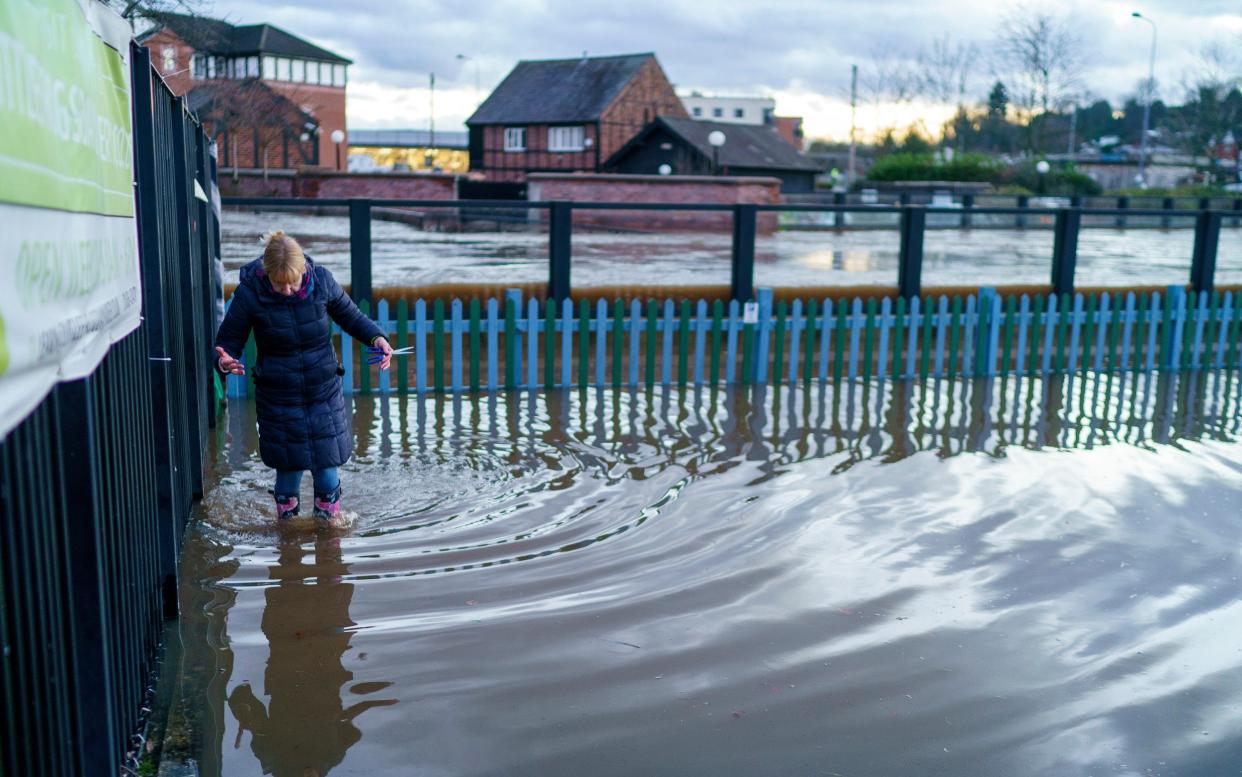Storm Christoph: Flooding comes after tough year for Environment Agency

Storm Christoph comes after a difficult year for the Environment Agency in which it struggled with the aftermath of last year's winter floods and the Covid-19 pandemic.
Staff shortages throughout 2020 saw up to one in five staff absent, and last week chief executive Sir James Bevan admitted the agency had had “a tough autumn” leading it to miss its flood defence repair targets.
Environment Agency staff absences peaked at more than 18 per cent during September and were never below 13 per cent between May and November, according to data collected under Freedom of Information laws by environmental policy publication ENDS Report.
In November a report by government spending watchdog the National Audit Office found that almost 200,000 homes were still at risk due to damage caused by the severe flooding that took place last February.
The agency said 80 per cent would be fixed by the end of the year, and in the other cases temporary measures would be introduced.
But last week Sir James said that of the 610 defences damaged last winter, just 262 had been mended. In 189 cases temporary fixes like temporary barriers or mobile pumps were being used instead, while in 159 others damage was judged to be minor enough that repairs were not urgent.
While it had been “a tough autumn for all sorts of reasons” including weather and Covid, he insisted the delay had not left any properties at greater risk because of “effective mitigations”.
“We are in a position that means that there is no greater flood risk to any of the properties that were protected by those defenses before they were damaged,” he said.
The UK experienced its wettest-ever day on October 3, and above-average rainfall fell across the country last month.
England had 160 per cent of its average rainfall for December, while north Yorkshire had 140 per cent and Wales saw 155 per cent.
On Thursday the agency said emergency measures had protected 9,000 properties that would otherwise have been flooded.
Tamara Finkelstein, permanent secretary for the Department for Environment, Food and Rural Affairs, said the department had had to reassign people to focus on issues like food supply during the Covid crisis.
“We have been agile in moving people and ensuring that we are continuing to resource priorities and I do feel comfortable that we are resourcing people working on floods within the department, that it is adequate,” she said.
In a blog post last April, Environment Agency chair Emma Howard Boyd said the agency would “have to take into account the national situation” in its work. Flood defences formed part of its critical services, she said.
The crisis came on top of budget cuts that industry figures said had left the agency struggling.
Phil Conran, director of waste consultancy 360 Environmental, said: "There were already issues with the Environment Agency's ability to deal with all their responsibilities because of the squeezing of their budgets over the years anyway, and the Covid crisis added to that."
Paul Cobbing, of charity the National Flood Forum, warned that "ageing infrastructure" maintained by both the EA and local councils, such as drains and sewerage was also a concern. Council budgets have also been cut over the past few years.
"Individual assets owned by or managed by the Environment Agency are important because they very often deal with large numbers of people. But they're only one part of a much, much bigger picture," he said.
Mike Hopkins, managing director of flood modelling company Storm Geomatics Limited, said its work had ground to a halt between March and May as the EA, other clients and landowners were reluctant to allow work to continue.
“We were being told that we weren't allowed out,” he said, adding that the situation was rectified soon after and work allowed to continue.
“We've had a pretty busy time since we’ve been allowed to go back to work again, which has been good, but the problem with this wet weather now, we can't get on because you can't physically get into the river any more, because it’s all flooded. We've had to stand down quite a lot of jobs.
“It's a very difficult business to be in operationally because you're fighting the elements the whole time. With Covid on top, that made it even more interesting.”

